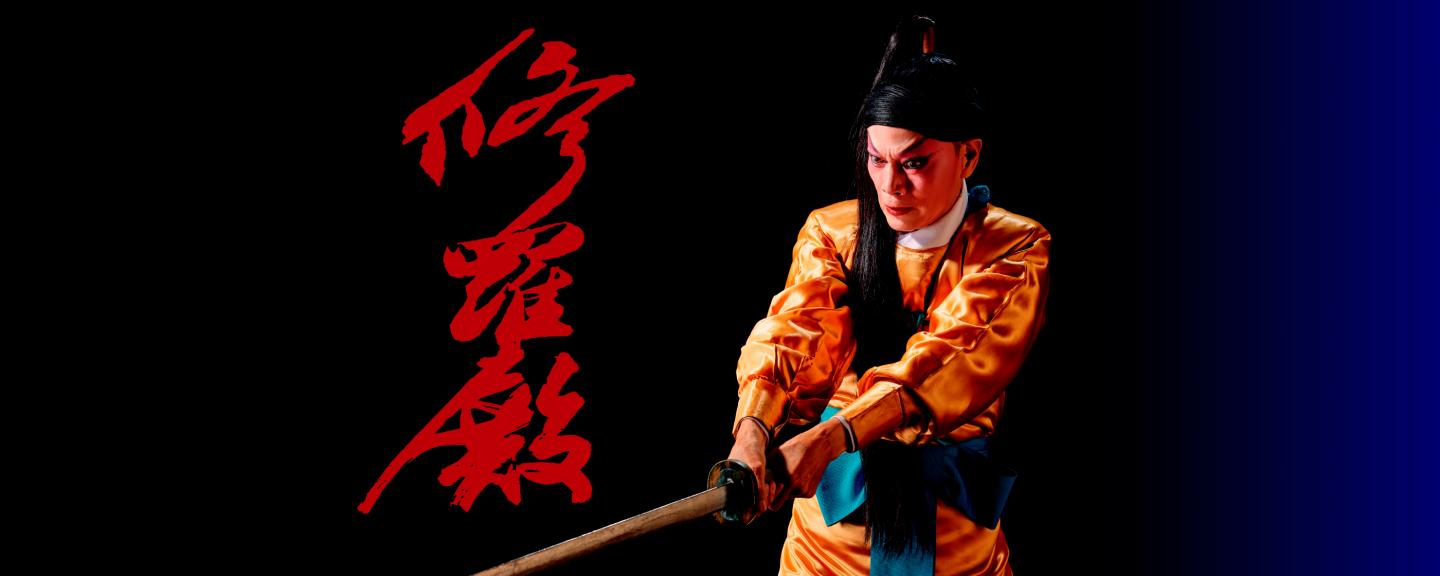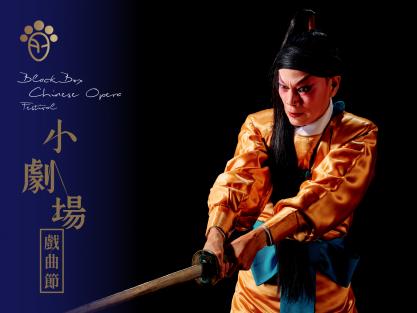Main
Description
此劇由戲曲中心委約,為粵劇名伶羅家英博士從藝半世紀以來首部獨腳戲,他親自創作及一人分飾多角,將黑澤明經典電影改編成小劇場粵劇獨腳戲。
故事時空由日本改為明末,保留劇本骨幹,由強盜與一對夫婦牽涉的命案開始,審訊過程中帶出多個不同版本的「真相」。作品向電影的剪接和現代劇場的敍事手法取經,打破粵劇傳統舞台和燈光,在台上不斷轉換時間與空間,與觀眾以不同角度思考道德、信任和人性。
羅家英博士近年致力將外文經典如《李爾王》、《馬克白》改編成粵劇,尤其特別欣賞黑澤明的作品,《修羅殿》為他思考沉澱經年的成果,去年曾演出接近三小時的足本群戲,今次小劇場的演出擷取精華,透過多媒體的互動,結合現代劇場手法,向難度更高的獨腳戲挑戰。
冠名贊助:
製作:

藝術及製作團隊:
編劇、導演、演員:羅家英
監製、導演、劇本整理:鍾珍珍*
作曲、編曲:譚兆威
技術總監:胡偉聰*
舞台設計:陳興泰
燈光設計:蕭健邦
音響設計:馮璟康
錄像設計:方曉丹
助理監製:李嘉隆*
製作經理:盧月芳*、陳嘉儀*
監製助理:莊淑雯*、丘穎晞*
樂師:
音樂領導:李廸倫
擊樂領導:麥嘉威
樂師:司徒蔚雪、朱智明、何綺雯、何晉熙、吳泳霖、吳家寶、茹健朗、袁嘉怡、廖俊熙
*西九文化區職員
Additional info
Tabs
Commissioned by the Xiqu Centre, the experimental Cantonese opera The Asura Judgement is a stage retelling of the classic Japanese film Rashomon and stars Cantonese opera legend Law Kar-ying in a solo performance where he takes on multiple roles.
The original version of The Asura Judgement, written by Law himself, had a running time of over two hours. After its run, Law condensed it into a 90-minute experimental solo performance.
From its set design, to the lighting and sound systems, the production ulitises a combination of modern theatre technologies to craft a refreshing Cantonese opera experience for the audience. While Law is the sole actor on stage, he is able to interact with other characters via multimedia footage. This allows the events to be recounted through a string of contradicting perspectives, thus bringing out the core theme of the story—the ambiguous nature of truth and humanity.
The pared-down set and the employment of multimedia elements and montage technique add to the contemporary look and experimental ethos of the show as it explores new possibilities of Cantonese opera.
The continuous and sustainable development of Cantonese opera relies on bold experimentation and constant innovation. It was this belief that propelled Law to take on the monumental challenge of making and starring in The Asura Judgement. As a widely-revered industry veteran, he also hopes that his own journey of creating a multimedia Cantonese opera production will provide encouragement and wisdom for future innovators.
Cantonese Opera
Originating in the Guangzhou region of southern China, Cantonese opera is a genre of Chinese traditional theatre that is popular in Guangdong, Guangxi, Hong Kong and Macau, as well as the Chinese diaspora in Southeast Asia, America and Europe. The singing style adopts elements of bangzi and erhuang (traditional vocal and phrasing styles), and combines tunes of various origins, including set tunes from gaoqiang (high-pitched) and Kunqu genres and elements of folk narrative singing. Cantonese opera was inscribed onto the UNESCO Representative List of the Intangible Cultural Heritage of Humanity in 2009.


